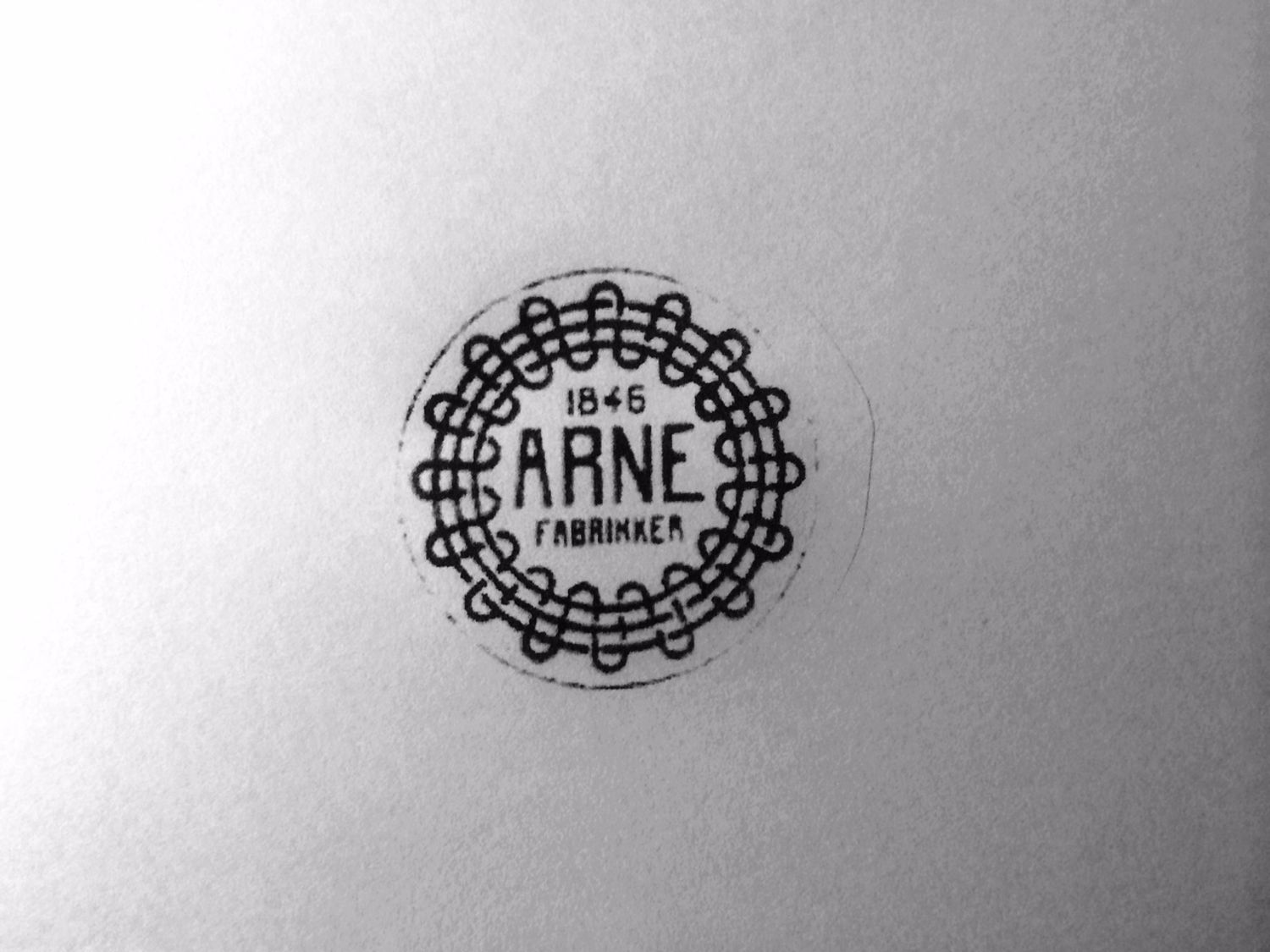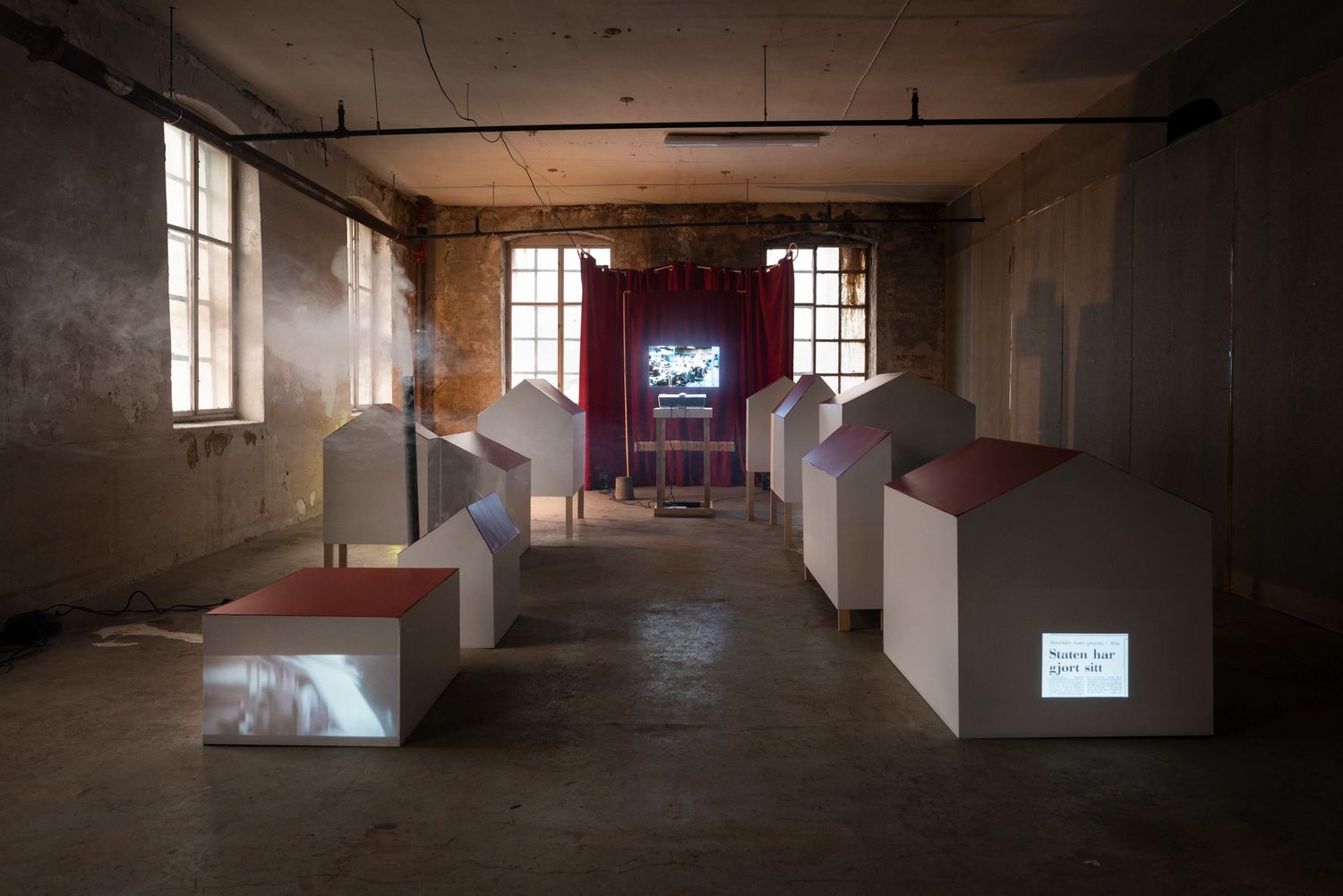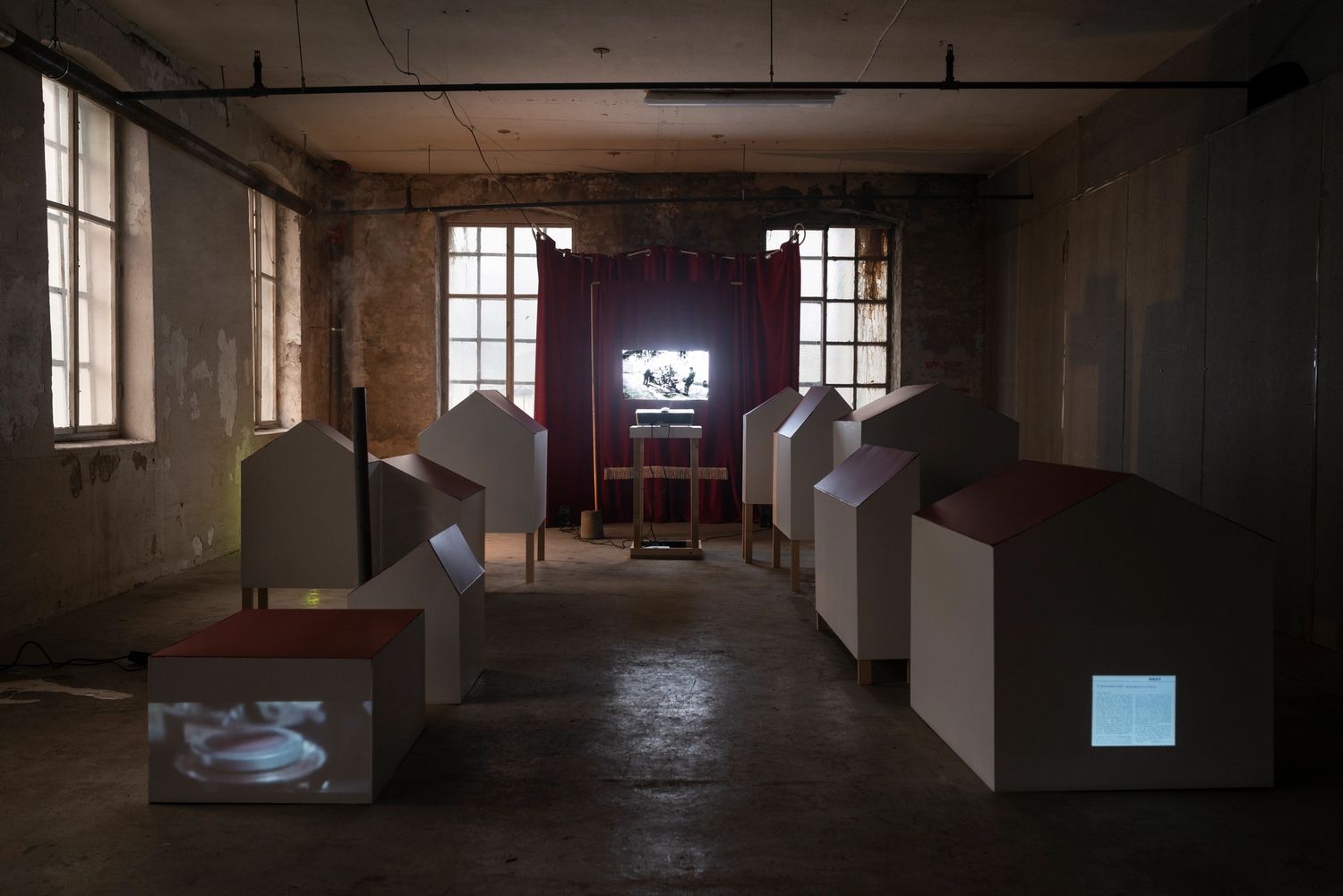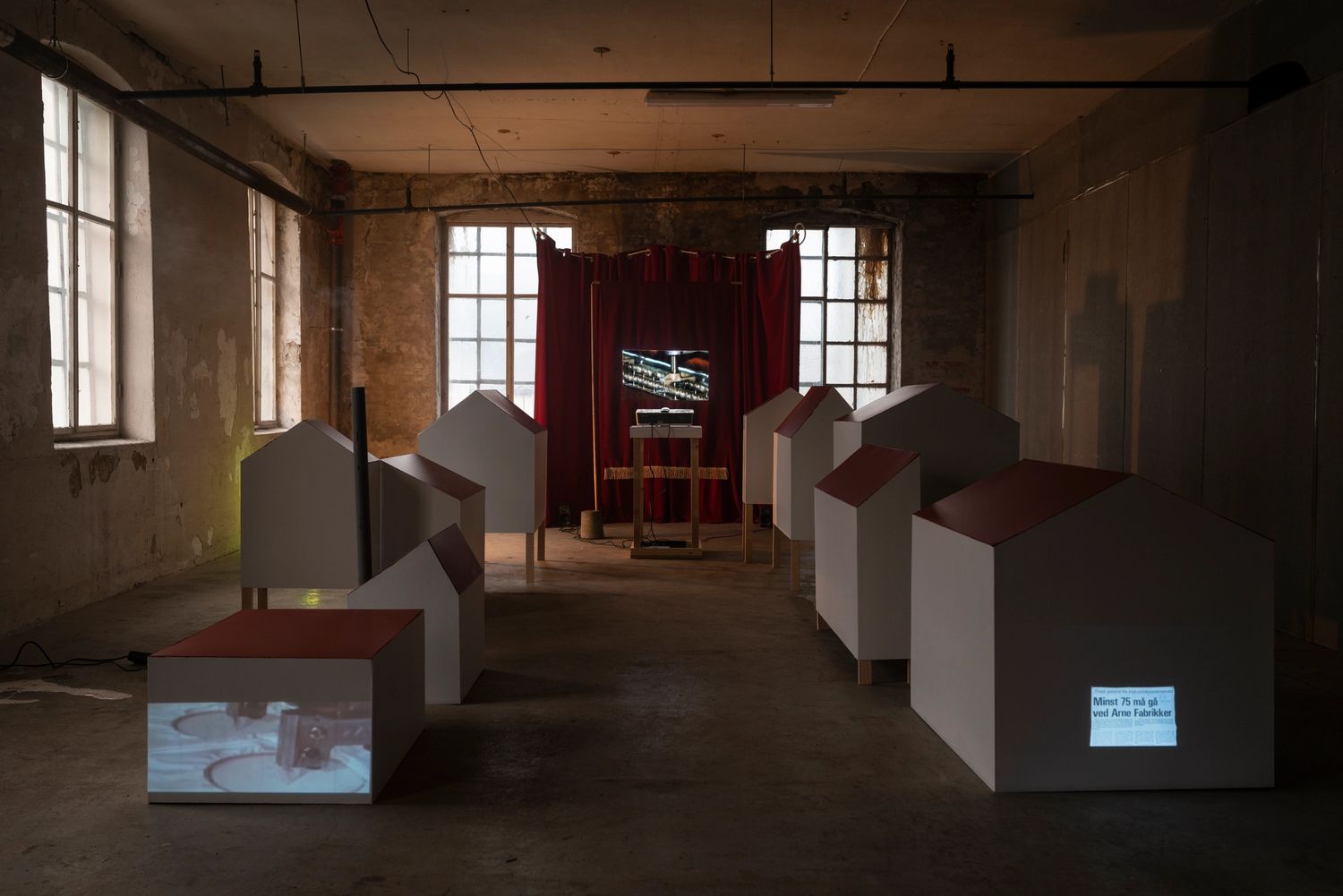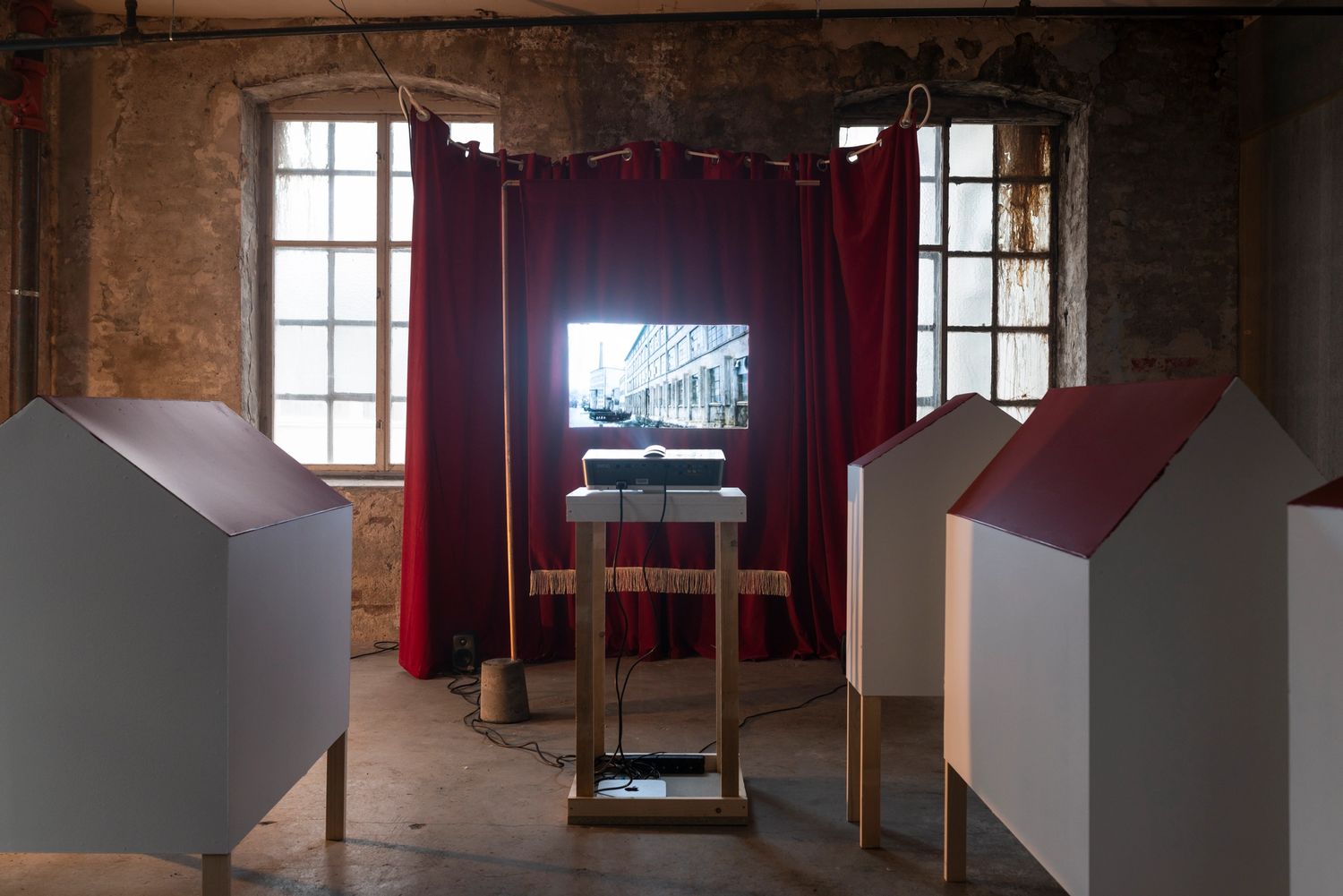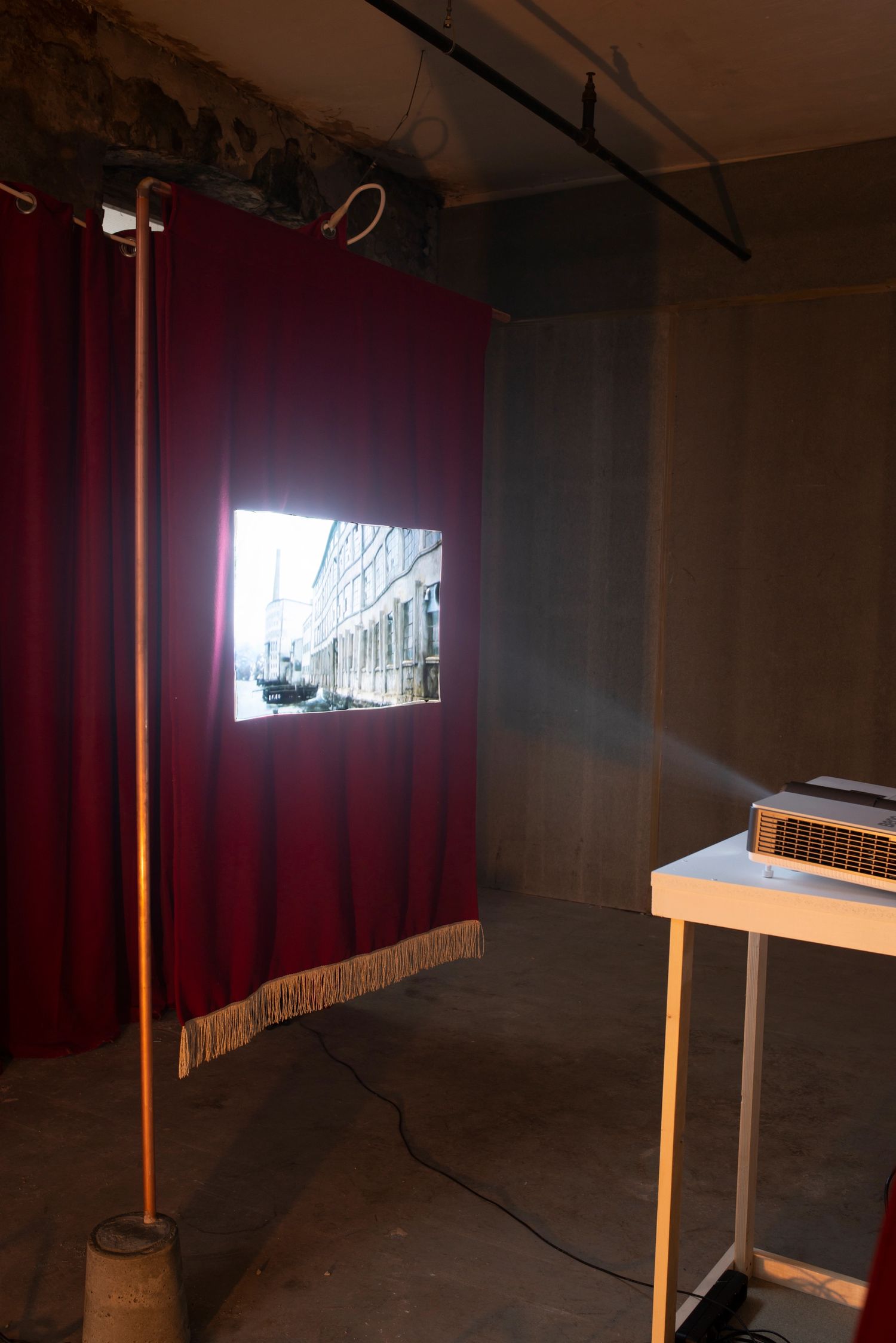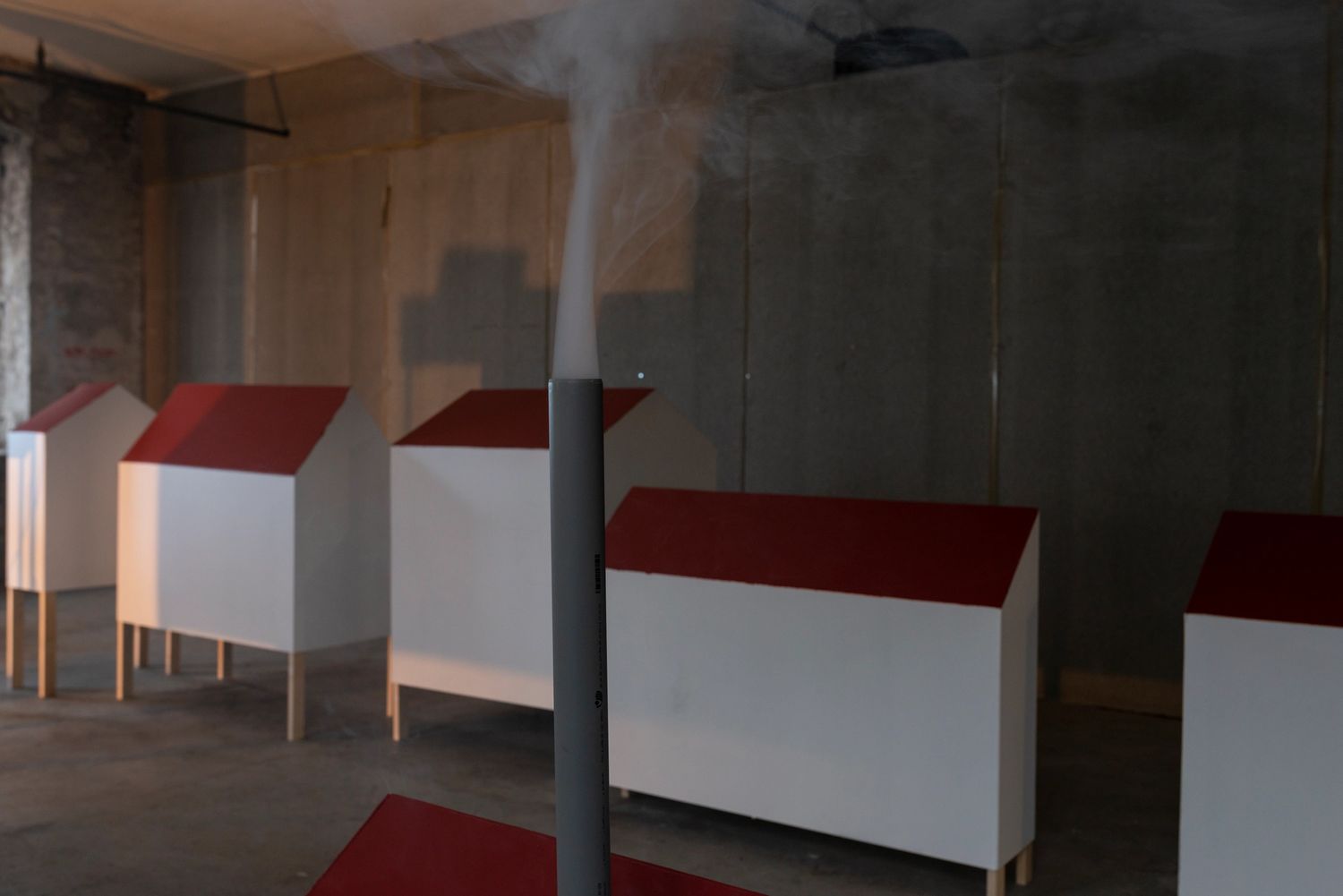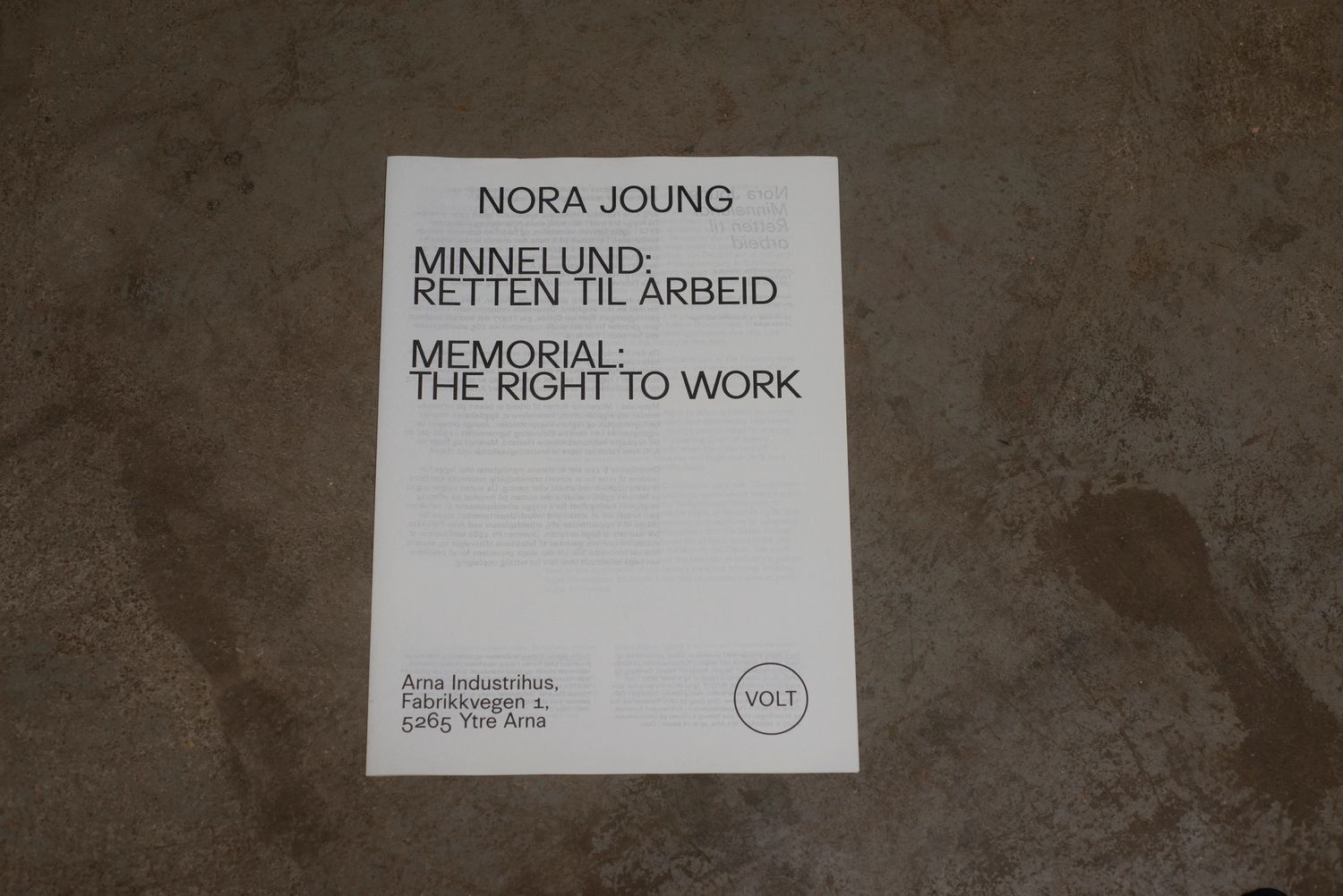Memorial: The Right to Work consists of archive material that documents the winding down of a factory. A/S Arne Fabrikker in Hordaland employed up to 1200 people. When Norway joined the European free trade organization EFTA in 1960, protective tariffs were abolished and the company experienced increasing competition. To counter the increasing competition from free trade, attempts were made to pave the way for a more resilient national textile sector. The Department of Industry entered the fray to build up the holding company A/S Norion. Norion was a fusion of the privately owned Arne Fabrikker, started by Peter Jebsen in 1846, Høie Fabrikker, owned by Peter Mentz Jebsen, and Mosjøen Veveri.
The Jebsen family retained the share majority in Norion, while the Norwegian State came in with a large shareholding. In 1977 the then Minister of Industry in the Labour Government, Bjartmar Gjerde, gave what were considered guarantees that 165 jobs would be maintained at the factory in Ytre Arna.
When the engines in the still-profitable part of the business were nevertheless moved out of the region and large numbers of the workers were laid off, three workers, backed by their respective unions, sued the State for loss of income and failure to maintain the workplaces at Arne Fabrikker.
The material in Memorial: The Right to Work is based on, among other things, legal documents, historical documents, interviews, recordings and union records. Joung’s project takes its starting point in a judgement from the Eidsivating Court of Appeal (Eidsivating lagmannsrett) in 1982 when the three laid-off industrial workers Haaland, Markhus and Boge from A/S Arne Fabrikker lost their suit against the State.
Article 110 of the Norwegian Constitution says that "The authorities of the state shall create conditions under which every person capable of work is able to earn a living through their work or enterprise." When the State sold its share of Norion in 1986, this marked the end of public intervention in commerce to safeguard jobs for the population. The requirement that the State, through the Department of Industry, should be obliged to maintain 165 jobs at Arne Fabrikker was not fulfilled by the Court. The court ruling from 1982 concludes that the Minister of Industry’s guarantees to the employees of the factory were not binding, creating legal precedence for future breaches of promise between politicians and voters.
